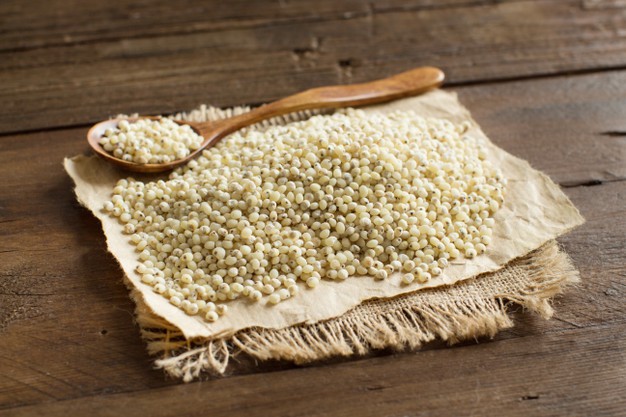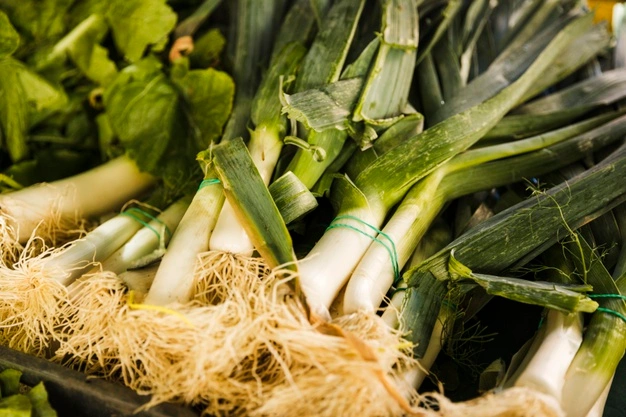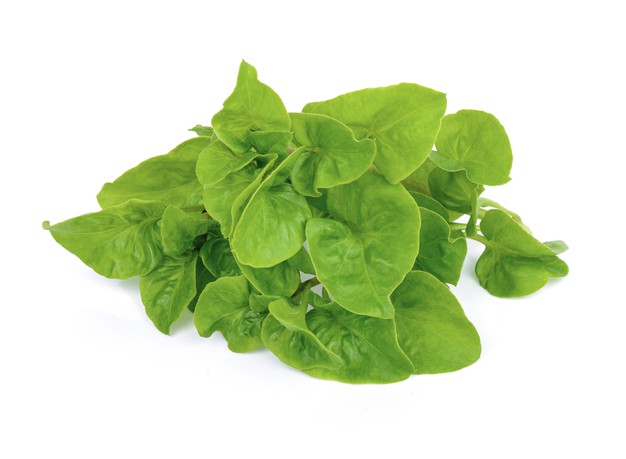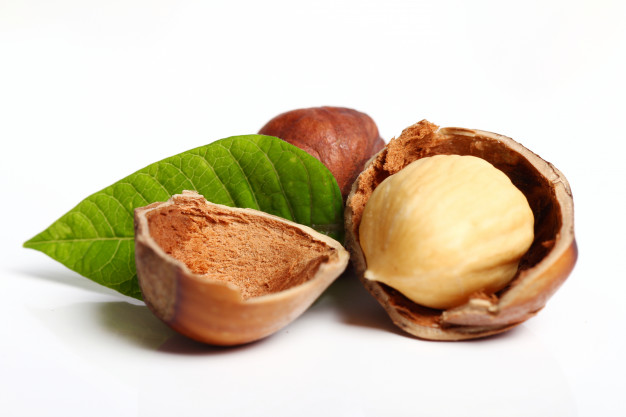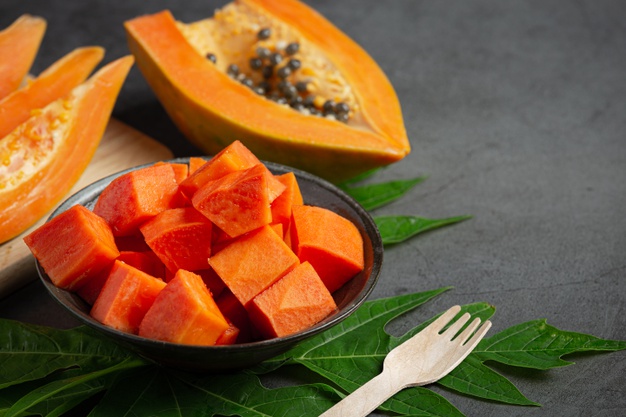Jowar is also known as sorghum, is one of the most nutrient dense grains, which belongs to grass family Poaceae. It has been used for centuries for various therapeutic purposes.
Types of Jowar
- Jowar is generally found in two forms, which include white jowar and yellow jowar
- Both of these jowar are packed with antioxidants and their consumption significantly decreases the susceptibility of chronic illness as they helps to protect the body from oxidative damages
- They both are rich in fibre thus their consumption is very effective for reducing the prevalence of cardiovascular diseases, obesity, diabetes and hyperlipiemia
- They only differ in their glycemic index. White jowar has the glycemic index of 49.85 whereas yellow jowar has the glycemic index of 52.56
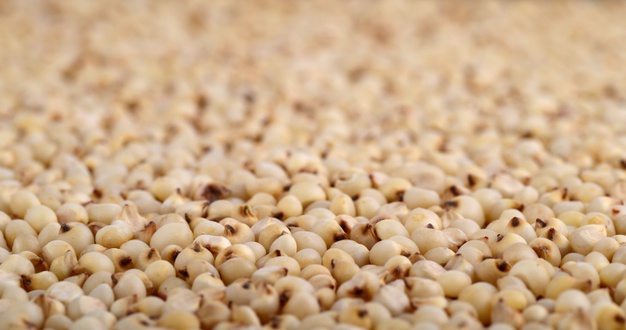
Nutritional profile
- It contains significant amount of carbohydrate especially complex carbohydrate
- It is rich in fibres as well
- It is high in protein thus it is considered as a good source of protein for vegans. It has seen that jowar flour provide complete protein if it is consumed with legumes
- It also contains too some extent of fat. It contains both saturated and unsaturated fatty acid but the amount of unsaturated fatty acid is found relatively higher in jowar
- It contains several micronutrients and especially rich in Vitamin B complex, iron, copper, zinc, calcium, phosphorus and potassium
- It is packed with various phytochemicals like tannins, anthocyanins, policosanols, phenolic acids and phytosterols that exert potent antioxidant, anti-inflammatory, anti-carcinogenic and nutraceutical activities, which ultimately help to provide proper protection to the body against diseases

Biological activity
Antioxidant activity
- Its polyphenolic components and micronutrient components are responsible for exerting antioxidant activities
- It helps to protect the body from free radical damages as it decreases the concentration of free radicals by scavenge them
- It also helps to decrease the level of reactive oxygen species (ROS), which ultimately helps to reduce oxidative stress
- It helps to prevent lipid peroxidation as well
- It also helps to promote cellular functions by preventing cellular damages thus decreases the risk of developing of chronic diseases
Anti-inflammatory activity
- Its phytochemicals components are accountable for exhibiting strong anti-inflammatory activities
- It plays significant role in decreasing the concentration of pro-inflammatory mediators in body thus helps to prevent inflammation
- It has seen that consumption of jowar is very effective for delaying the onset of inflammatory events in body thus reduces the prevalence of chronic inflammatory diseases
- Individual who suffer from arthritis can consume jowar as it helps to prevent joint swelling

Anti-carcinogenic activity
- Consumption of jowar significantly reduces the risk of developing cancer as its phytochemical components act as strong anti-carcinogenic substances
- It plays significant role in decreasing the concentration of carcinogens in body thus protects the body from its harmful consequences
- It is also associated with suppressing the growth of cancerous cells and tumor cells in body by regulating cellular proliferation and apoptosis
Health benefits
Role on digestive health
- Consumption of jowar is incredibly useful for promoting digestive health
- Its high fibre content is responsible for preventing constipation as it helps to increase bowel movement. It helps to increase the mass of stool and makes the stool soft as well, which also facilitates the defecation process thus improves the symptoms of constipation
- Its fibre content helps to promote the growth of intestinal beneficial microbes thus plays significant role in improving gut health as well
- It helps to improve colonic health too as it is related with enhancing peristalsis
- Its consumption is very effective for decreasing the prevalence of bloating, diarrhoea, stomach ache, irritable bowel syndrome etc
Role on skeletal health
- It contains significant amount of calcium as well as phosphorus, both of the minerals are extremely important for the formation of healthy bone tissues thus its consumption is very effective for promoting skeletal health
- It helps to increase bone mass as well
- It helps to increase bone mineral density thus enhances the strength of bones
- Individuals suffer from bone disorders should include jowar in their diet for improving their symptoms rapidly

Role on eyes
- Its consumption is very beneficial for promoting eye health as it contains adequate amount of zinc, which is required for activating the enzyme responsible for producing Vitamin A from beta-carotene
- It also protects the retina from oxidative damages thus helps to enhance vision
- It has seen that its consumption significantly reduces the prevalence of night blindness, age related macular degeneration, xerophthalmia, corneal xerosis, cataract and bitot’s spot
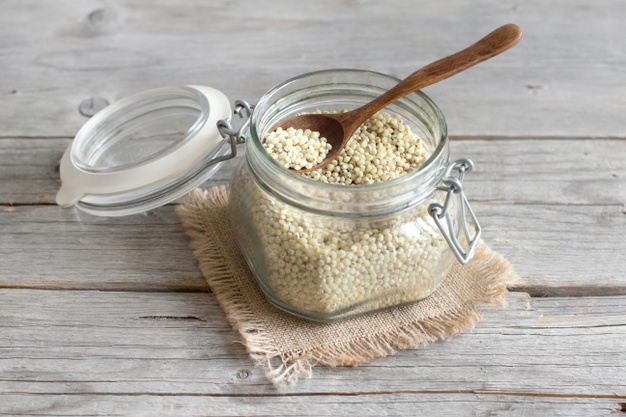
Role on circulation
- It contains significant amount of iron, folic acid and copper, which play imperative role in improving blood circulation
- It has seen that copper is very effective for enhancing the absorption of iron and the iron as well as folic acid help to increase the synthesis of hemoglobin. They also help in the production and maturation of RBC thus promote the overall blood circulation in body and decrease the prevalence of anemia
Role on metabolism

- It plays significant role in promoting carbohydrate metabolism as it contains significant amount of B Vitamins especially Vitamin B1, B2 and B3, which help to activate the enzymes that participate in carbohydrate metabolic reactions
- These vitamins play the role of coenzyme in metabolic reactions. TPP, FMN, FAD, NAD+, NADP+ are the respective coenzyme forms of Vitamin B1, B2 and B3
- It helps to stimulate the production of ATP from carbohydrates
Role on endurance
- Its protein contents, fibre contents, hypotensive effects and alkaline nature are responsible for increasing the synthesis of RBC
- RBC helps to provide sufficient energy to the body that ultimately improves the endurance level
- Endurance athletes like swimmers or runners or bikers should consume jowar or food prepared by jowar flour for enhancing their performance ability
Therapeutic uses
- Its fibre content is considered as the main component that exerts hypolipidemic activities. It helps to decrease the concentration of LDL, VLDL and triglyceride in blood thus its consumption is extremely useful for preventing hypercholesterolemia
- It is also used as an effective preventive measure for cardiovascular diseases
- It helps to prevent hypertension as well
- Its consumption significantly decreases the prevalence of heart attacks or stokes
- It also facilitates weight reduction
- It has hypoglycemic activity as well thus it is extensively used by diabetic patients for reducing their elevated blood glucose concentration

Ayurvedic uses
It has been traditionally used in Ayurveda for treating various medicinal conditions such as –
- Indigestion
- Weight reduction
- Cardiac disorders
- Cold and flu
- Bone disorders
General consideration of using jowar
- It is better to consume one or one and half serving of jowar daily
- It can be consumed at any time like breakfast or at lunch or at dinner
- Jowar flour can be used for preparing roti
- It can also be used for preparing porridges and it is considered as one of the healthiest foods for children
- It can be used for preparing cupcakes as well
Risk factors
Jowar is an important food stuff that exhibits various health benefits but it should be consumed as per required amount as its overconsumption may cause several gastrointestinal disturbances.
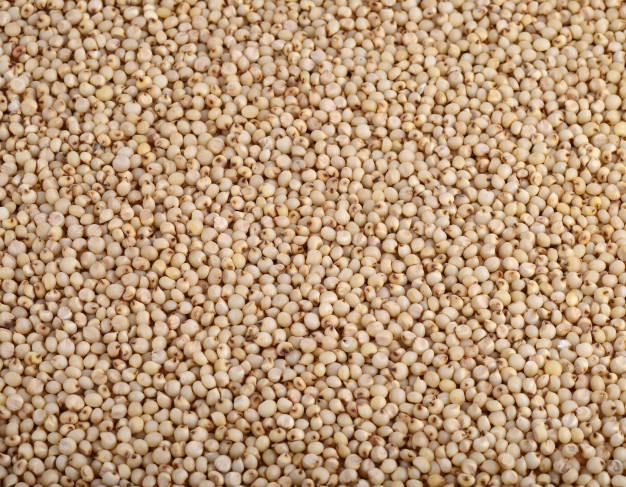
Source:
Awika, J.M., 2017. Sorghum: Its unique nutritional and health-promoting attributes. In Gluten-free ancient grains (pp. 21-54). Woodhead publishing.
Dayakar Rao, B., Bhaskarachary, K., Arlene Christina, G.D., Sudha Devi, G., Vilas, A.T. and Tonapi, A., 2017. Nutritional and health benefits of millets. ICAR_Indian Institute of Millets Research (IIMR), Rajendranagar, Hyderabad, p.112.
de Morais Cardoso, L., Pinheiro, S.S., Martino, H.S.D. and Pinheiro-Sant'Ana, H.M., 2017. Sorghum (Sorghum bicolor L.): Nutrients, bioactive compounds, and potential impact on human health. Critical reviews in food science and nutrition, 57(2), pp.372-390.
McGinnis, M.J. and Painter, J.E., 2020. Sorghum: History, Use, and Health Benefits. Nutrition Today, 55(1), pp.38-44.
Rao, D., Bharti, N. and Srinivas, K., 2017. Reinventing the commercialization of sorghum as health and convenient foods: Issues and challenges. Indian Journal of Economics and Development, 13(1), pp.1-10.
Xiong, Y., Zhang, P., Warner, R.D. and Fang, Z., 2019. Sorghum grain: from genotype, nutrition, and phenolic profile to its health benefits and food applications. Comprehensive reviews in food science and food safety, 18(6), pp.2025-2046.
